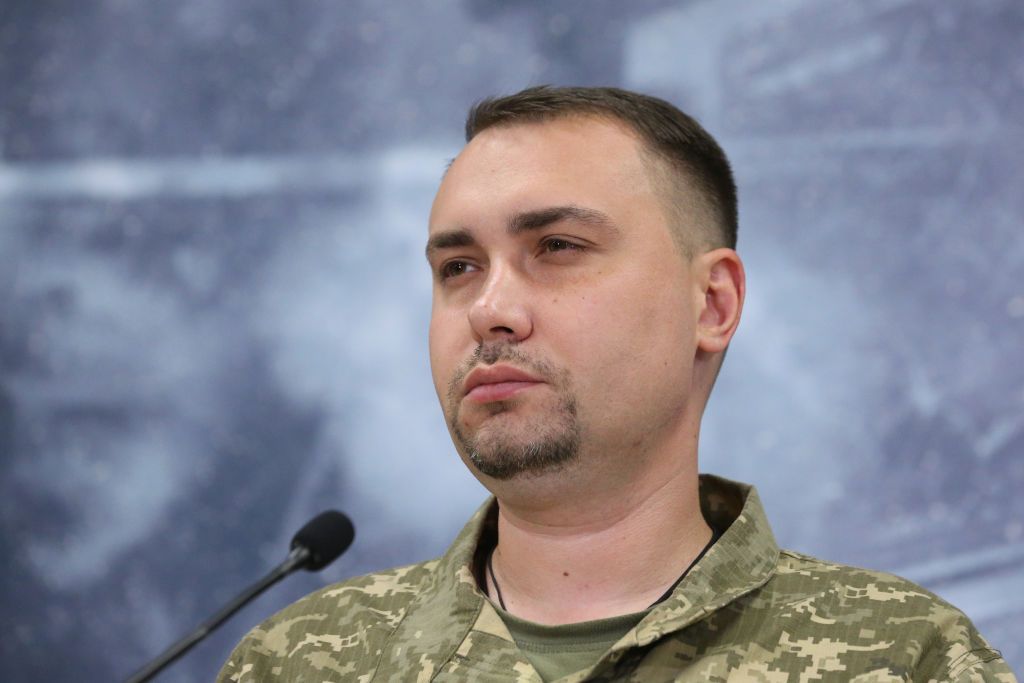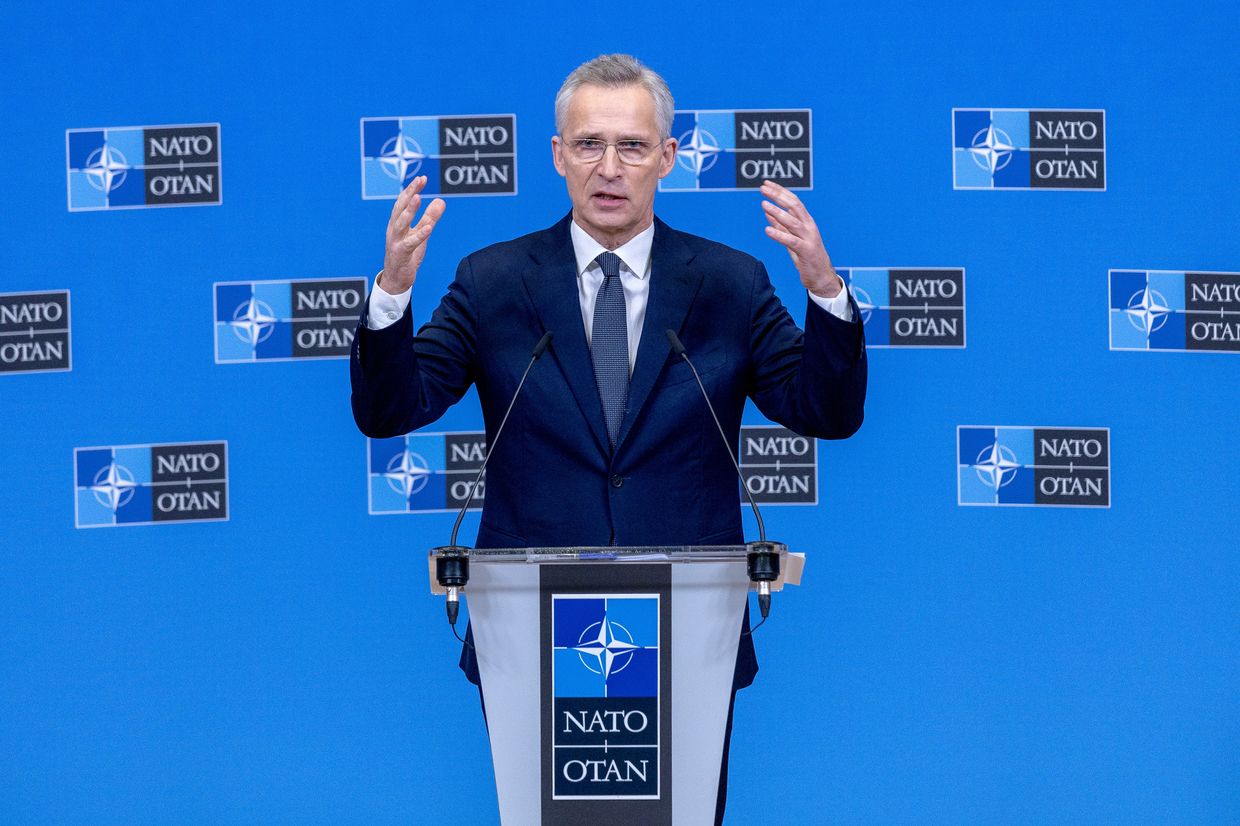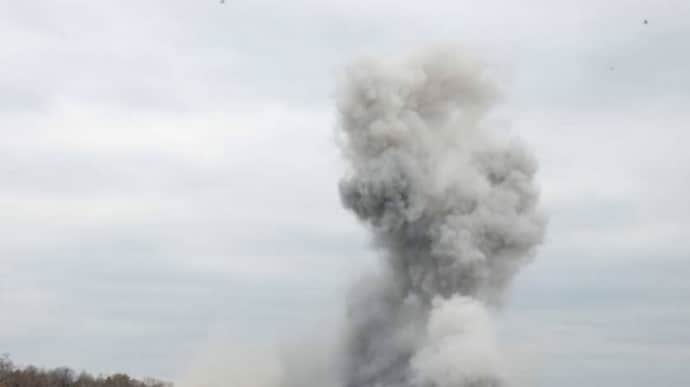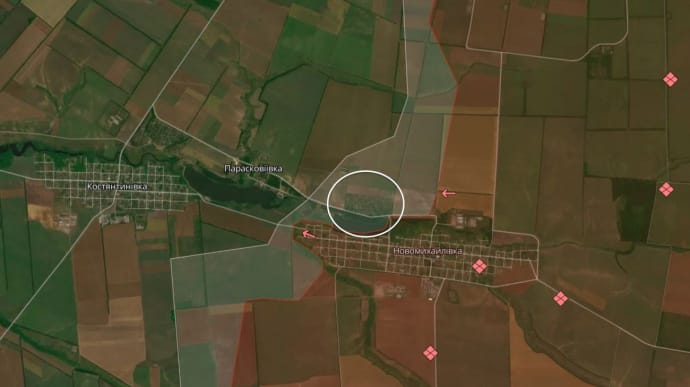Daily Flyer - April 22, 2024
A voice of Ukraine to the West

Ukraine faces difficulties starting mid-May - Chief of Intelligence

Ukraine is approaching a challenging phase in the ongoing conflict with Russia, with increasing pressure from intensified attacks and delayed aid from the United States. According to Kyrylo Budanov, Ukraine's military intelligence chief, the upcoming period, from mid-May to early June, will be difficult but not disastrous.
In an interview with the BBC published on April 22, Budanov emphasized that while the coming weeks may present hurdles, there is no cause for alarm. He remarked, "A difficult situation awaits us in the near future. But it will not be catastrophic, let's be clear." Despite these anticipated difficulties, the intelligence chief urged against exaggeration, dismissing predictions of a catastrophic outcome.
President Volodymyr Zelensky has warned that Russia might launch a significant offensive towards the end of May or in June, raising concerns about escalating conflict. Meanwhile, Budanov noted that while Russian infantry has improved its equipment since the start of the full-scale war, its heavy machinery quality is declining, with much of it being refurbished or restored from long-term storage.
The morale of Russian troops has fluctuated over time, gaining a temporary boost after capturing Avdiivka, a key city in Donetsk Oblast. However, this uplift was short-lived. Russian forces have since turned their focus to Chasiv Yar, a town west of occupied Bakhmut, indicating a shift in their strategy.
In light of these developments, the Commander-in-Chief of Ukraine's Armed Forces, Oleksandr Syrskyi, remarked on April 13 that the situation in Ukraine's eastern front has "significantly deteriorated in recent days." This shift in the conflict underscores the unpredictable and evolving nature of the war in Ukraine, with both sides adapting their strategies in response to the changing dynamics.
US aid delay led to real consequences in Ukraine- Stoltenberg

NATO Secretary General Jens Stoltenberg emphasized on MSNBC that the delay in U.S. aid for Ukraine has had tangible impacts on the battlefield, leading to significant consequences. Although the U.S. House of Representatives passed a $61 billion aid bill for Kyiv on April 20, months of political gridlock left Ukraine's defenses in a precarious position.
Stoltenberg highlighted the critical situation on the front line, noting that Ukrainian forces have been significantly outgunned, with Russia enjoying a significant advantage in artillery and other weapons. This imbalance has led to Ukraine's inability to intercept as many Russian missiles and drones due to shortages of air defense systems and ammunition. However, Stoltenberg stressed that it is not too late to reverse the situation, acknowledging Ukraine's resilience and skill in defending its territory.
Despite these setbacks, Stoltenberg pointed out that Ukraine has already achieved notable successes, liberating half of the territory initially captured by Russia and conducting deep strikes and operations in the Black Sea. He underlined that with proper weaponry and consistent support, Ukraine could still make significant progress.
Since U.S. aid delays began, Ukraine has faced considerable challenges, losing control of the key front-line city of Avdiivka and experiencing substantial damage to its energy infrastructure from Russian attacks. Many officials and experts, including CIA Director William Burns, have indicated that the delay in U.S. support has directly contributed to these losses, pointing to critical shortages of artillery and air defense ammunition.
While the House's approval of the aid bill is a step forward, the process is not yet complete. The bill must still pass through the Senate, with a vote expected as early as April 23. The outcome of this vote will have a substantial impact on Ukraine's ability to continue defending its territory and pushing back against Russian aggression.
US aid can give Ukraine respite, but a quick battlefield shift is unlikely
The recent approval of the $61 billion U.S. aid package for Ukraine by the U.S. House of Representatives could offer Ukraine a much-needed reprieve, but immediate changes on the battlefield are still distant, according to Bloomberg's report on April 22. The bill, which was passed after months of congressional delays, is now awaiting approval in the Senate.
The aid package aims to address critical shortages in artillery rounds and air defense ammunition, which have been placing significant pressure on Ukraine's forces as they face increased Russian attacks. However, logistical constraints mean that this aid may only begin to impact the front lines several weeks after its approval.
A defense expert interviewed by Bloomberg suggested that U.S. assistance could help Ukraine stall Russian advances and strengthen its defense. Mykola Bielieskov, a research fellow at the National Institute for Strategic Studies in Kyiv, noted that Russian President Vladimir Putin might be aiming to outlast Western support, raising concerns about the level of aid that will be available in 2025 and beyond.
The Institute for the Study of War (ISW) warned that Russia may exploit the delay in aid to intensify its offensive operations and missile and drone strikes, hoping to make gains before well-provisioned Ukrainian forces can mount an effective response. This escalation could occur as Russian forces take advantage of favorable spring ground conditions and continuing ammunition shortages on the Ukrainian side.
Ukraine's military intelligence chief, Kyrylo Budanov, told the BBC that Ukraine is likely to face a particularly challenging period in mid-May and early June. The Russian military, having captured Avdiivka in February, has since shifted its focus to Chasiv Yar, a mostly depopulated town in Donetsk Oblast located west of occupied Bakhmut.
Commander-in-Chief of Ukraine's Armed Forces Oleksandr Syrskyi indicated on April 13 that the situation on Ukraine's eastern front has "significantly deteriorated in recent days." These reports underscore the urgency for timely aid to bolster Ukraine's defenses and resist the intensifying Russian attacks.
Russia struck TV infrastructure in Kharkiv

On April 22, Russian troops attacked a television infrastructure facility in Kharkiv, causing disruptions in the digital television signal across the region. This was confirmed by Oleh Syniehubov, Head of Kharkiv Oblast Military Administration.
Fortunately, there were no human casualties as the employees were in a shelter during the air-raid warning. However, the attack led to significant interruptions in the digital television signal, impacting the ability of many residents to access news and other broadcast content.
This attack on Kharkiv's television infrastructure comes just days after a dozen TV channels broadcasting via the Astra satellite were forced to suspend broadcasting on April 17 due to a Russian attack on Ukrainian satellite television.
These disruptions are indicative of the ongoing efforts by Russian forces to target Ukrainian infrastructure, affecting not just communication capabilities but also public access to information. The consequences of these attacks highlight the importance of resilient communication systems and the significant impact on daily life when such infrastructure is targeted.
Russia claims to have captured Novomykhailivka, Ukraine's Armed Forces insist they hold part of the village

The Russian Ministry of Defence announced the capture of Novomykhailivka, a village south of Mariinka in Donetsk Oblast, while Ukrainian sources, including Ukrainska Pravda, dispute this claim, indicating that Ukrainian Defence Forces still retain control over the northern part of the village.
Sources from the 79th Separate Tavriia Air Assault Brigade deployed on the Novomykhailivka front confirm that the Defence Forces likely maintain positions at the dachas north of Novomykhailivka, across the Sukhi Yaly River. This area, designated as a "grey zone" on the DeepState map, remains under Ukrainian control, suggesting that Russian forces have not yet secured the entire village.
According to both Ukrainska Pravda and DeepState, the Russians have taken over most of Novomykhailivka, leaving it almost entirely destroyed and uninhabitable. The Russian offensive on this front began in autumn 2023, with fierce fighting by February 2024. Ukrainian paratroopers from the 79th Brigade have been key in repelling Russian attacks, notably throughout April 2024.
Following the capture of Mariinka in January 2024, Russian forces have renewed their offensive in this area, focusing on Mariinka and exerting pressure on neighboring settlements. This includes the relatively large city of Krasnohorivka to the north and the villages of Paraskoviivka and Kostiantynivka to the south. Novomykhailivka has become a focal point for these offensives, with heavy fighting continuing as Russian forces push to expand their control.

